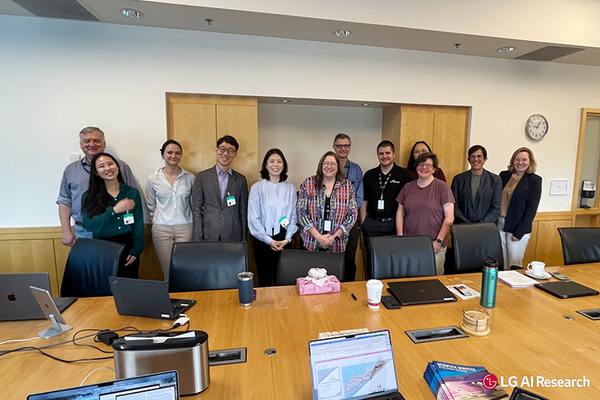
LG AI Research, Korea's leading artificial intelligence (AI) company, has achieved remarkable results in Alzheimer's treatment research through collaboration with Jackson Laboratory, a world-renowned life sciences research institution in the United States. The two organizations announced that they presented a total of 6 joint research papers at ICML, the world's top-level AI conference, and AAIC, the largest conference in the Alzheimer's field, this year. This is evaluated as a representative case of Korean AI technology being recognized in the global medical research field.
◇ Development of AI Technology Utilizing 'Incomplete Medical Data'
The core technology developed by LG AI Research and Jackson Laboratory is an AI model that can utilize even 'incomplete medical data' that was previously discarded. Generally, medical research often excludes patient data with missing test results from analysis. However, the AI model called 'MOIRA' developed by the research team utilizes such incomplete data for learning, significantly improving the accuracy of Alzheimer's diagnosis.
Another achievement is the technology for analyzing individual cells in blood. Previously, cells were analyzed only as a single mass, but the research team developed a two-stage approach that analyzes cells by type and then synthesizes them again. This enables high-accuracy disease prediction even with small amounts of data. The recognition of these two technologies as papers at ICML, the world's top AI conference, demonstrates the excellence of Korean AI technology.
◇ Comprehensive Alzheimer's Research Results from Lab Mice to Humans
The characteristic of this joint research is that it encompasses the entire process from laboratory mouse studies to actual human patient data analysis. The 4 papers presented at AAIC, the world's largest conference in the Alzheimer's field, are the result of this integrated approach.
In research targeting laboratory mice, AI was used to analyze behavioral changes related to Alzheimer's. Particularly, they discovered that female mice show more pronounced behavioral changes than males, and confirmed that fatty and sweet foods worsen Alzheimer's symptoms. This provides important clues for future Alzheimer's prevention and treatment development.
In human-targeted research, they identified the types of brain cells most associated with Alzheimer's through brain tissue analysis. They also developed an AI model that can predict Alzheimer's-related cognitive decline using only genetic information. The AI independently rediscovered already known Alzheimer's-related biomarkers, receiving evaluation for proving the medical application potential of deep learning technology.
◇ Korean AI Technology Leading Global Precision Medicine Research
Based on these results, LG AI Research and Jackson Laboratory are expanding their research to the actual drug development stage. Research teams from both sides recently met at Jackson Laboratory headquarters in Connecticut to discuss methods for selecting and validating genes that could become Alzheimer's treatment targets.
Jackson Laboratory plans to conduct actual animal experiments and clinical trials targeting these genes in the future. This represents the process of AI research results leading to actual drug development, showing that Korean AI technology is playing a core role in the global biohealthcare industry.
This collaboration is significant as a case where a Korean AI company has established an equal partnership with a world-class research institution, beyond being a simple research project. By combining vast genomic data, life science expertise, and large-scale AI model analytical capabilities, they are presenting integrated solutions ranging from early diagnosis to identifying root causes and developing new drugs. Both organizations stated, "We plan to continue playing a leading role globally in AI-based precision medicine through ongoing joint research."
